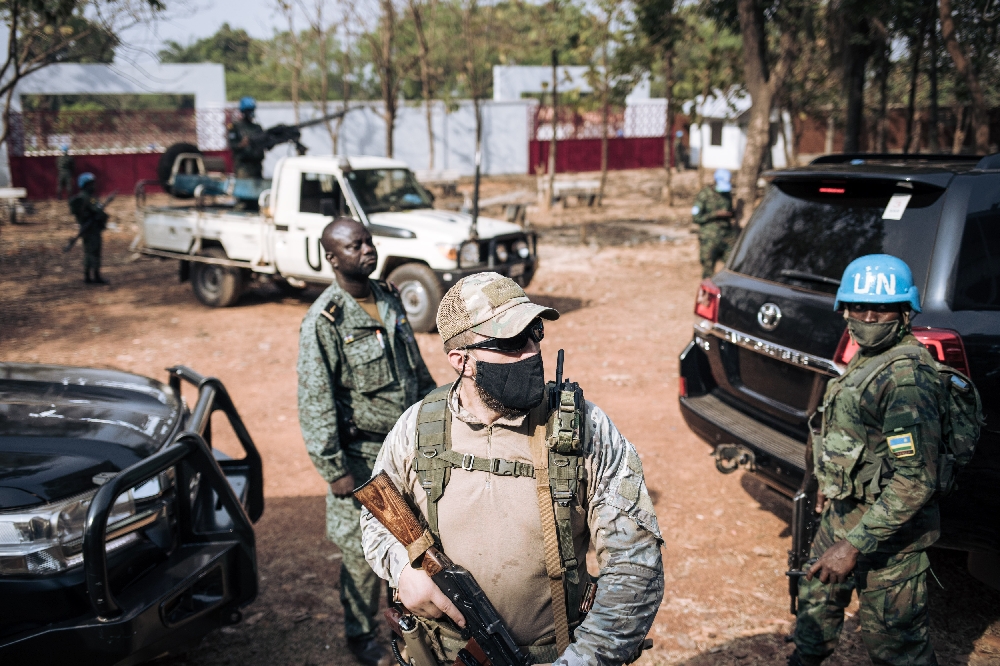The UN’s envoy to the Central African Republic (CAR) accused the nation’s security forces and their Russian allies on Wednesday of multiple human rights violations.
The CAR’s closer relationship with Moscow dates back to 2018, when Russia sent “instructors” to help train its beleaguered armed forces and supplied small arms, gaining exemption from a UN weapons embargo.
One of the world’s poorest countries, the CAR has been chronically unstable since it gained independence from France in 1960.
Mankeur Ndiaye told the UN Security Council that human rights violations and breaches of international humanitarian law are “attributable to the Central African armed forces, bilateral forces and other security personnel”, referring to the hundreds of Russian paramilitaries deployed in the country.
The CAR has become a key area in the controversy over the role in Africa of the Wagner mercenary group which is allegedly run by the shadowy businessman Yevgeny Prigozhin, a close confidant of President Vladimir Putin.
Armed groups
Prigozhin was sanctioned by Washington which accused him of playing a role in meddling in the 2016 presidential elections, in particular through his internet “troll factory.” He has denied any involvement.
Deputy US Ambassador to the UN Richard Mills also spoke out against the paramilitaries.
“We are troubled as well by continued reports of Central African armed forces and Russian instructors committing violations of international humanitarian law,” he said. “They are operating (as a) direct extension of Russia’s ministry of defense.”
France’s ambassador to the UN, Nicolas de Riviere, also raised concerns about armed groups.
“Some will attempt to deny the presence of the Wagner company. Therefore, who are these men involved in the fighting… and to whom do they answer for their actions?” he asked.
Russians also provide CAR President Faustin Archange Touadera’s personal protection and his powerful national security advisor, Valery Zakharov, is a Russian.
“The deployment of bilateral forces will only gain in utility and legitimacy if they contribute to the protection of civilians against the abuses of armed groups,” said Ndiaye.
Source: AFP
Picture: AFP


